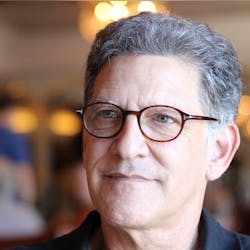Passion has been the driver of my life since I can remember, and passion has no limits. My wife doesn’t agree so much. She is practical, logical, and she had me watch something about how people gain passion for a discipline as they become very good at it.
Before I could disagree, she said, “Of course, there is your passion for the fire service. You never were a real firefighter. No, I haven’t been a career fighter, but when the heat seared my face entering a flame-filled house, I felt like I was fighting a fire. Furthermore, I was passionate about the fire service before anything else, way back when I was six, when my dad would take me to each of the 36 stations in Oklahoma City. A scanner announcing every fire alarm blared day and night in my bedroom. I pored over test manuals.
Recently, I interviewed for a leadership position. One of the interviewers asked, “Do you think that your passion might interfere with organizational decisions?” My reaction was one of ownership of my love of the profession until I realized that he was serious and deserved an intelligent answer. “Hasn’t happened so far. Didn’t happen when I was fire commissioner or in other leadership positions.” Later, after I thought more about it, I understood what the interviewer meant. Controlled passion can push us beyond what might be seen by others as impossible. However, unbridled passion can be overbearing or dangerous.
Disciplined practice
Upon graduation from prep school, my advisor let me know that, although my passion for firefighting was commendable, “Our graduates go to universities, where they can learn to make significant contributions to society.” I must have been misinformed: I thought saving lives and property at considerable personal risk was contributing to society.
After I earned a master’s degree, much to my surprise, I found that I had some sense for sales and marketing. Honestly, the very thought of sales made me retch, but I had nothing to lose, so I studied and worked many hours and became very good at it. Eventually, I did like the challenge and the results, particularly if that discipline helped me to contribute to the fire service. But passionate about sales? No.
Sometime after I graduated from rookie school, I had the good fortune to meet Chief Warren Isman, who headed up the Public Service Training Academy. “Ben, citizens don’t really know what we do,” he said, “and people don’t support things financially or politically that they don’t understand. If you can use your marketing expertise to tell the people what we do, you will be contributing an invaluable service to the profession.”
I created a discipline based on Isman’s guidance and called it Fire Service Marketing Management. I presented the concept to Firehouse Magazine, and they gave me a platform to write about it. After a few years presenting it at conferences and fire departments, I was appointed fire commissioner in the suburbs of Seattle. I thought I died and went to heaven, but now I had to learn how to be a leader in the profession that I loved. That was hard as hell.
Soon after that, Disney hired me and let me go unbridled with my passion for fire protection if I could create attractions in alliances with the Disney brand. Once these alliances took off, Disney allowed me to lecture at the National Fire Academy and to contribute to the strategic and communications plans of fire service organizations and departments.
On the day that I retired from Disney, much to my astonishment, the operations chief of Orange County, CA, Fire Rescue appeared with an award. “Ben,” he said, “we present this for your work in the creation of our strategic plan at a very difficult and challenging time. Your personal contribution probably saved more citizens’ lives than all 1,100 firefighters combined.”
I was gobsmacked, as I remembered my wife’s comment, “You never were a real firefighter,” and I heard my adult son say just one word: “Whoa.”
From passion to practice
As the fire service culture changes, firefighters will learn to be proud in knowing that their educational initiatives stopped a fire from happening, in the same way that they feel proud after a successful knockdown.
We don’t enter this profession by accident, and we all contribute in our own unique way. In the end, it’s passion that drives us, even to the dark, painful places.
About the Author

Ben May
Ben May is a Board Director of the Center for Public Safety Excellence. A graduate of the Montgomery, MD, Public Service Training Academy, he was a firefighter for Hillandale, MD, Fire and Rescue and fire commissioner for Woodinville, WA, Fire & Rescue. May served as a marketing consultant to Fire Service Publications (IFSTA) of Oklahoma State University’s School of Fire Protection Technology, to the U.S. Fire Administration and to numerous metropolitan fire departments in the creation of strategic marketing communications plans. He is a member of the National Society of Executive Fire Officers and the Institution of Fire Engineers. May holds a bachelor’s degree in public affairs and Russian from the University of Oklahoma and a master’ degree in international communication and Russian from American University.
